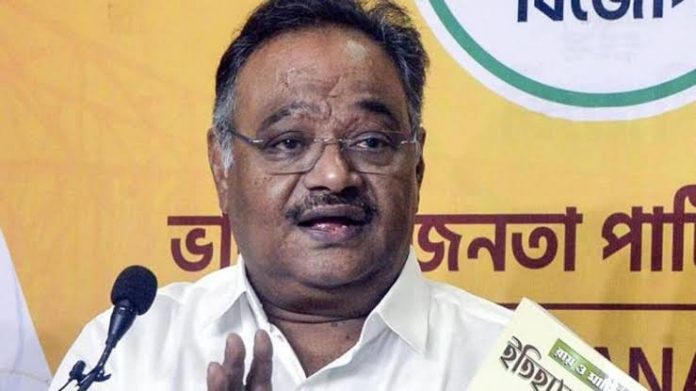Kolkata: In his first press conference after being appointed West Bengal BJP president, Rajya Sabha MP Samik Bhattacharya sparked controversy with his remarks targeting the Trinamool Congress (TMC) and urging educated Muslims to help remove the Mamata Banerjee-led government. His statements, widely seen as communal and politically opportunistic, drew sharp criticism from civil society and opposition parties, reported the Deccan Herald.
Bhattacharya accused the TMC of encouraging radical elements and failing to uphold democratic values. “Educated Muslims must rise above communal politics and vote out this regime,” he said. However, critics pointed out the irony of a BJP leader lecturing about communalism while his own party has repeatedly been accused of inflaming religious tensions across the country.
Claiming that the BJP stands for inclusiveness, Bhattacharya attempted to cite Syama Prasad Mookerjee’s vision of a pluralistic India. He went on to equate pluralism with Hindutva by saying, “Badhutwavad is Hindutvavad.” Observers questioned this redefinition, calling it a clear attempt to whitewash the BJP’s polarising politics under the guise of inclusivity.
Bhattacharya rejected any allegations of religious bias, saying the party opposes radicalisation of all kinds and stands for the protection of all communities, including Hindus and Muslims. Yet, many questioned the sincerity of these claims, especially given the BJP’s track record in states where communal violence has flared under its watch.
He further accused the TMC of using Muslims as a vote bank while doing little for their safety or progress. “TMC goons have attacked Muslims, and the police remained silent. Innocents were killed and injured,” he alleged, without presenting concrete evidence. Critics slammed the remarks as an attempt to sow division within the Muslim community by portraying the BJP as their savior, despite its history of Islamophobic rhetoric and policies.
Bhattacharya also painted a grim picture of Kolkata, warning that the city was slipping into a “pre-Independence scenario” under TMC rule. He invoked the legacies of Syama Prasad Mookerjee and Jyoti Basu, claiming the BJP would safeguard Bengal’s dignity or asmita. This rhetoric was dismissed by many as political posturing designed to appeal to nationalist sentiments.
Further targeting the TMC, Bhattacharya accused it of silencing opposition voices and discriminating against Hindi-speaking communities. He cited the expunging of BJP MLA Ashok Lahiri’s remarks in the Assembly and alleged that the TMC was creating hatred against migrants from Bihar and Uttar Pradesh.
Calling for a united front against Mamata Banerjee in the upcoming 2026 state elections, Bhattacharya even appealed to Left supporters to forget ideological differences and support the BJP. His overtures were met with skepticism and rejection by various political observers, who view such appeals as desperate attempts to gain relevance in a state where the BJP has struggled to establish deep roots.
Reacting to his statements, TMC spokesperson Kunal Ghosh said, “The BJP can continue dreaming. The people of Bengal have always rejected their divisive politics, and they will do so again.”




